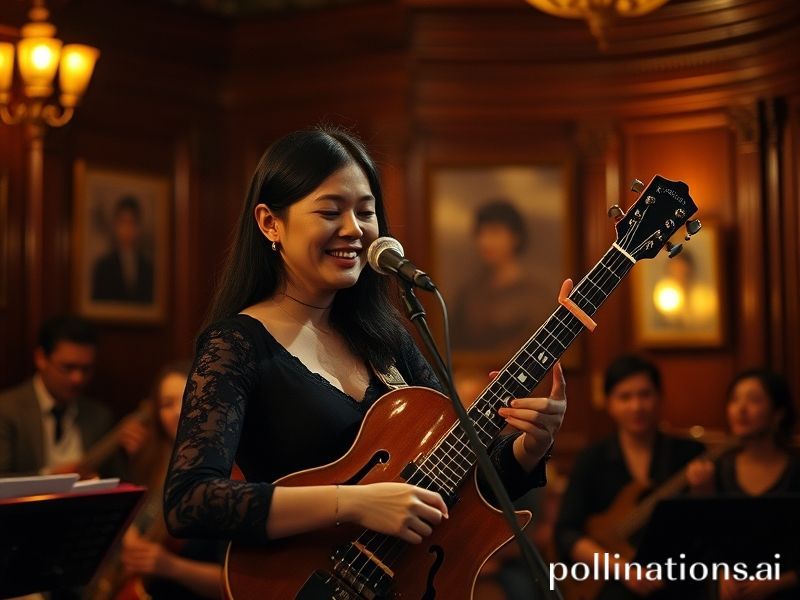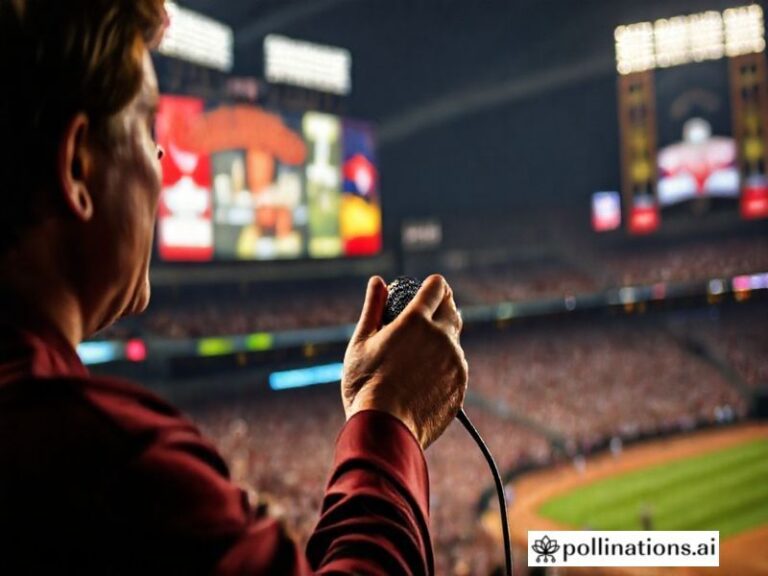Laufey: How a Gen-Z Icelandic-Chinese Jazz Singer Became the World’s Collective Therapist
Laufey: The 24-Year-Old Jazz Bard Who Convinced TikTok That Heartbreak Is a Luxury Good
By Dave’s International Desk
Somewhere between the collapse of the global supply chain and the collapse of your last talking stage, an Icelandic-Chinese cellist named Laufey (pronounced “LIE-vay,” because of course it is) has quietly become the sonic comfort blanket for a planet too anxious to sleep. While central banks bicker about interest rates like divorced parents at a PTA meeting, Laufey’s velvet contralto has racked up 2.3 billion streams, proving that the international mood is less “fight the power” and more “slide me a lo-fi lullaby while the world burns.”
Born in Reykjavík, raised in Beijing, polished at Berklee—her passport stamps alone read like the itinerary of a Bond villain’s art consultant. Yet the music she makes is defiantly old-school: string quartets, brushed drums, melodies that sound as if Ella Fitzgerald and Nick Drake got stuck in an elevator with a bottle of Brennivín. The joke, of course, is that this retro cocktail is delivered to us via algorithmic feeds optimized for 15-second dopamine bursts. Nothing says 2024 like watching a 1950s torch song go viral because a teenager in Jakarta looped the “sad girl autumn” chord change over footage of a dying houseplant.
Globally, Laufey is less a singer than a coping mechanism. In Seoul, her track “From the Start” plays over cosmetic-surgery clinic ads promising to restore the youth that capitalism stole. In Lagos, ride-share drivers queue up “Valentine” to muffle the sound of fuel-price protests. In Berlin, art students smoke roll-ups to “Let You Break My Heart Again” while rent triples around them. The song remains the same; only the currency of despair changes.
Critics—those professionally unhappy people who grade human emotion like it’s a term paper—call her aesthetic “Instagrammable nostalgia,” as if every generation doesn’t curate its own ruins. The truth is more mercenary: Laufey figured out that melancholy sells best when packaged as aspirational. Heartbreak isn’t tragic; it’s tasteful. Loneliness isn’t a failure; it’s a limited-edition lifestyle brand with exclusive vinyl pressings. Somewhere, a marketing intern is taking notes and accidentally curing their own depression with a mood board.
The geopolitical angle is deliciously absurd. China’s state-run outlets tout her Beijing upbringing as proof of soft-power reach; Iceland’s tourism board slaps her face on stopover ads promising “Nordic noir, now with saxophone.” The United States, naturally, claims her as proof that meritocracy still works, conveniently ignoring Berklee’s $75,000 annual tuition—roughly the GDP per capita of 40 percent of the world’s nations. Meanwhile, Spotify’s royalty statements show she earns about 0.0038 dollars per stream, a rate so exploitative it could be an IMF loan condition.
And still, the streams climb. The planet is a patient with a fever, and Laufey is the ice pack we collectively press to our foreheads. Her sold-out show at London’s Royal Albert Hall last month was less a concert than a group therapy session for an audience wearing thrifted 1940s dresses and the haunted eyes of people who’ve read the climate reports. When she sang “Dear Soulmate” to a hall full of strangers clutching £18 gin cocktails, the irony was thicker than the fog rolling in off the Thames. Everyone was there to feel less alone together, which is the most human contradiction we’ve invented since the United Nations.
In the end, Laufey’s global triumph isn’t really about jazz or even music. It’s about the discovery that sorrow, properly lit and EQ’d, is the last universally tradable commodity. While governments debate carbon credits and crypto regulations, we’ve quietly adopted a barter system where one lovelorn Icelandic sigh equals one micro-dose of hope. The exchange rate fluctuates, but the transaction is always the same: we give her our despair, she gives it back as art, and for three minutes and twenty-seven seconds, the apocalypse has a soundtrack we can hum along to.
That, dear reader, is what passes for international cooperation these days.







